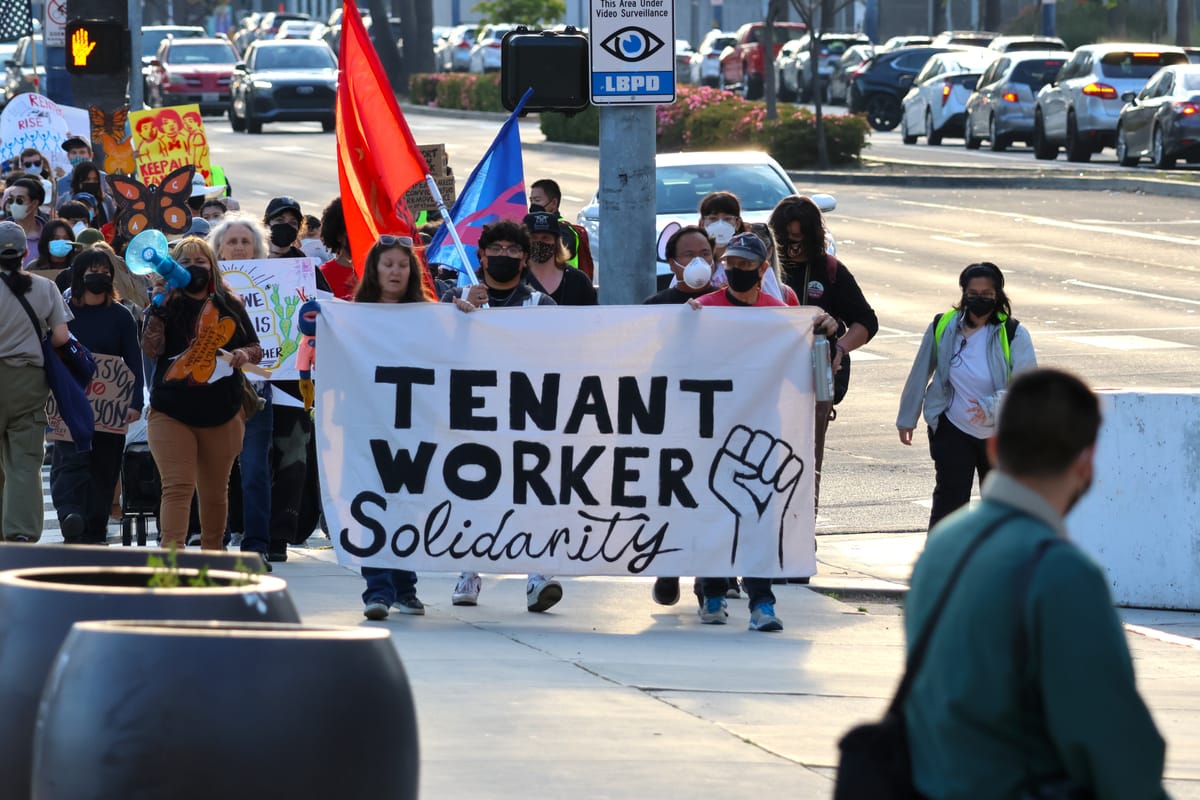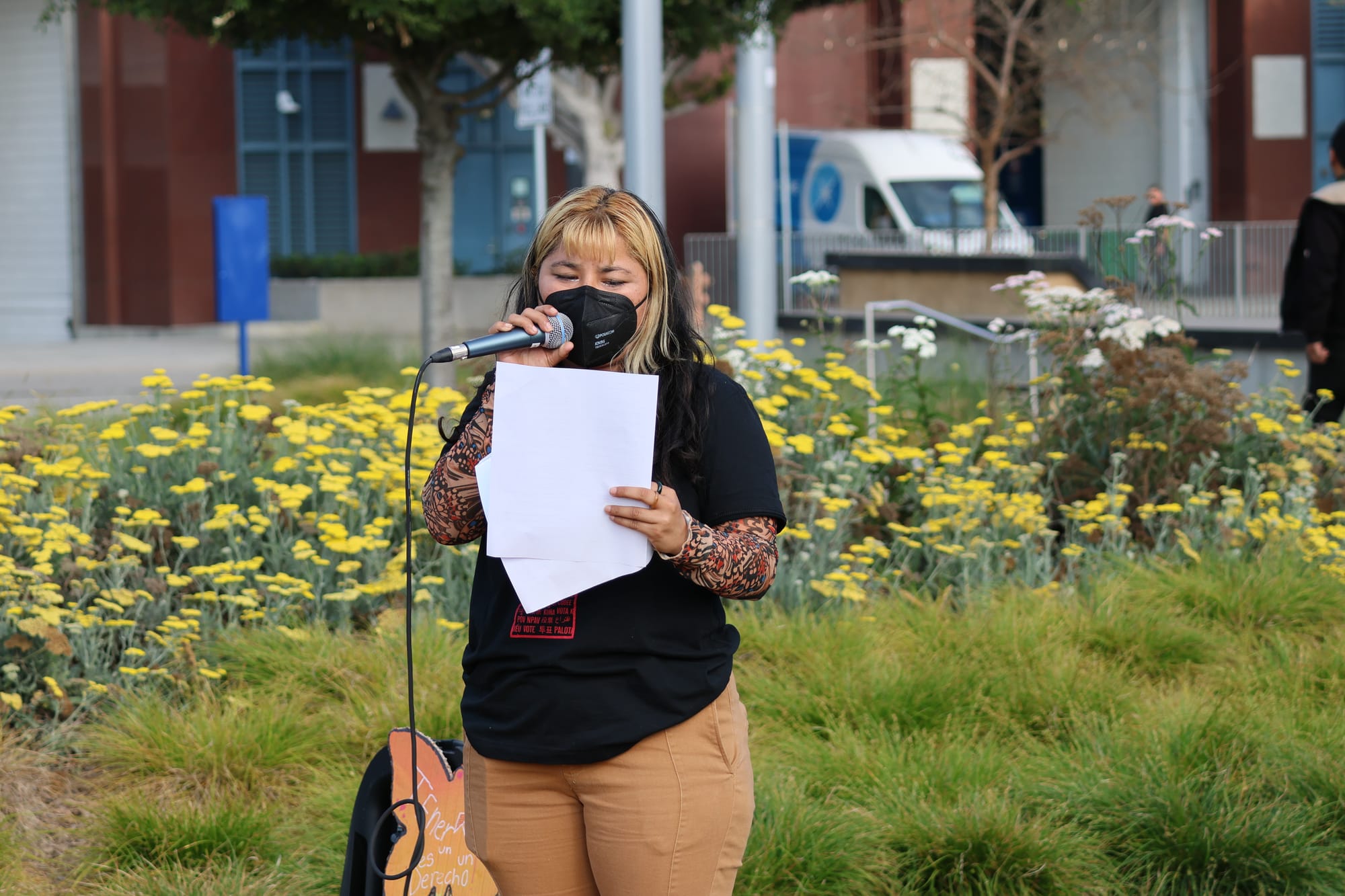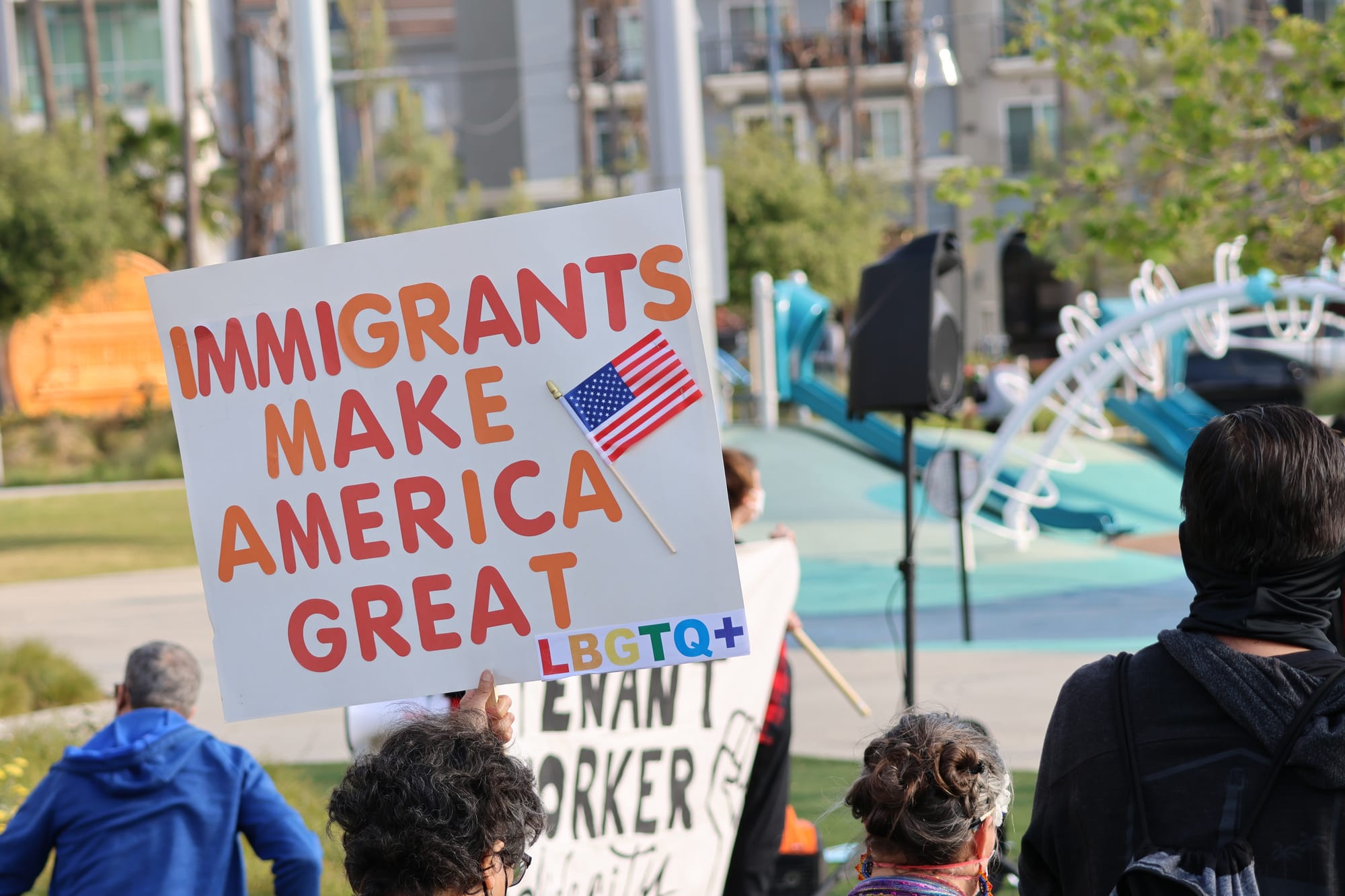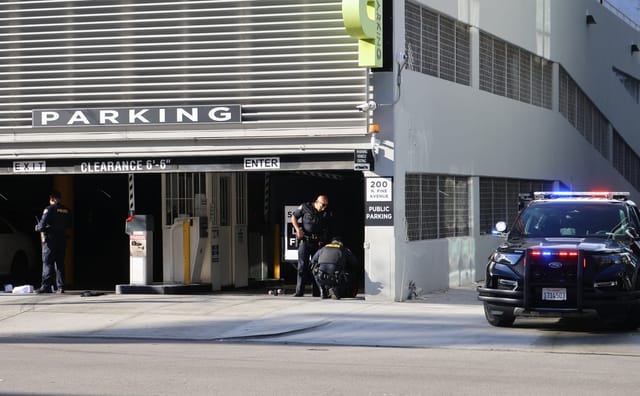‘Raise wages, lower the rent’: Long Beach tenants demand housing justice
More than 100 people gathered Downtown on May 1, urging city officials to adopt a rent stabilization policy, increase investment in legal aid for immigrants and tenants and create a livable wage.

Maria Lopez didn't set out to become a housing rights advocate. But after receiving a 300% rent increase and then facing the threat of eviction, she joined the Long Beach Tenants Union — and found her voice.
"We have been fighting as tenants and workers for better wages and better living conditions for a while,” Lopez said during a May 1 rally at Lincoln Park. “Raise wages. Lower the rent — that’s our message.”
More than 100 demonstrators gathered Downtown, urging city officials to adopt a rent stabilization policy, increase investment in legal aid for immigrants and tenants, and create a livable wage for the city's working-class residents. The demonstration, led by several grassroots groups, included speeches, music and a march through Councilmember Cindy Allen's neighborhood, where protestors stopped in front of properties they said Allen operates as Airbnbs.
Allen did not immediately comment for this story.
According to the city's Housing Element, 60% of Long Beach residents are renters. Many tenant advocates argue the city is in an affordable housing crisis.

Lopez believes one major issue is a class divide between those who own property and those who rent it. "Bosses tend to be landlords. Tenants tend to be workers,” she said. “The goal isn’t to have landlords lower existing rents, but to prevent drastic increases.”
She and others want the Long Beach City Council to adopt a rent stabilization ordinance that caps annual rent increases at 3%. Several cities across Southern California, including Los Angeles, Santa Monica, Beverly Hills, Inglewood, Palm Springs and West Hollywood, have adopted rent control policies.
But many of these protections are constrained by the state’s 1995 Costa-Hawkins Rental Housing Act, which limits local rent control to buildings constructed before 1995 and exempts single-family homes.
In 2024, voters rejected Proposition 33, which would have allowed cities broader authority to enact rent control. According to CalMatters, the California Apartment Association spent $11 million to defeat the measure, arguing it would reduce incentives to build desperately needed housing.
Thursday's event coincided with International Workers' Day, also known as May Day, and included representatives from Long Beach Localist and Organizing Rooted in Abolition, Liberation & Empowerment (ORALE).

These groups advocate for policies that ensure the people who work in Long Beach can also afford to live there. Dennisse Tapia, speaking on behalf of ORALE, said her organization has seen a rise in attacks on immigrants, including through housing displacement.
“We’re asking the city to invest $2.2 million in structural funding for the Long Beach Justice Fund,” Tapia said. The fund provides legal assistance in immigration and other cases.
Lopez and others highlighted the communities most affected by evictions in Long Beach are Black women, single mothers, and families with children. They say the political will is lacking.
The message from each speaker was clear, community is key to addressing key issues in Long Beach. Lopez highlighted the importance of asking for help earlier rather than later.
"If you're struggling with an illegal eviction, we are ready to support you in resisting and making sure you have community by your side," she said.
"If you need legal resources, immediately connect with StayHousedLA.org. If you feel like you need a companion, also reach out to us at LongBeachTenantsUnion,” she added.
We need your support.
Subcribe to the Watchdog today.
The Long Beach Watchdog is owned by journalists, and paid for by readers like you. If independent, local reporting like the story you just read is important to you, support our work by becoming a subscriber.





